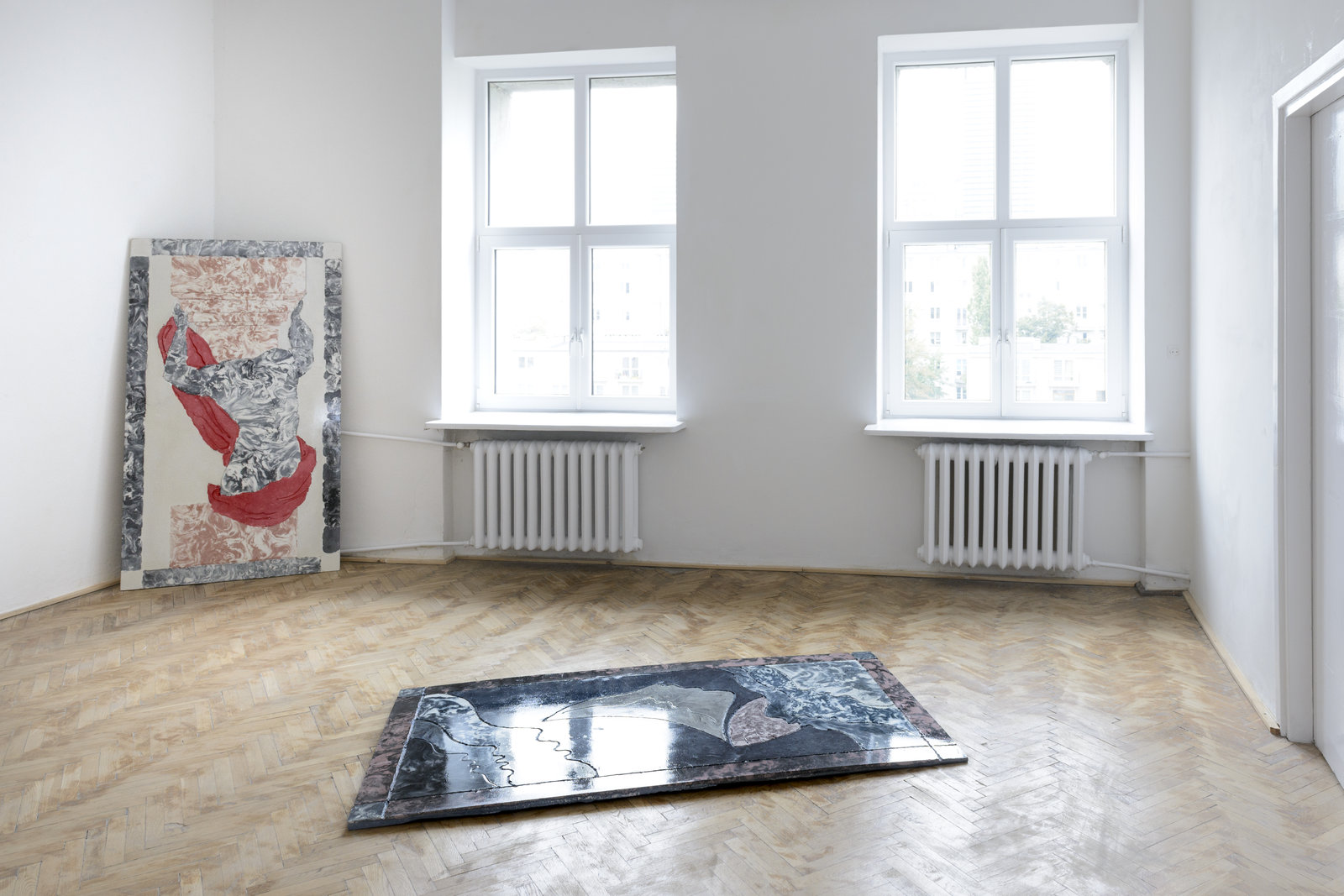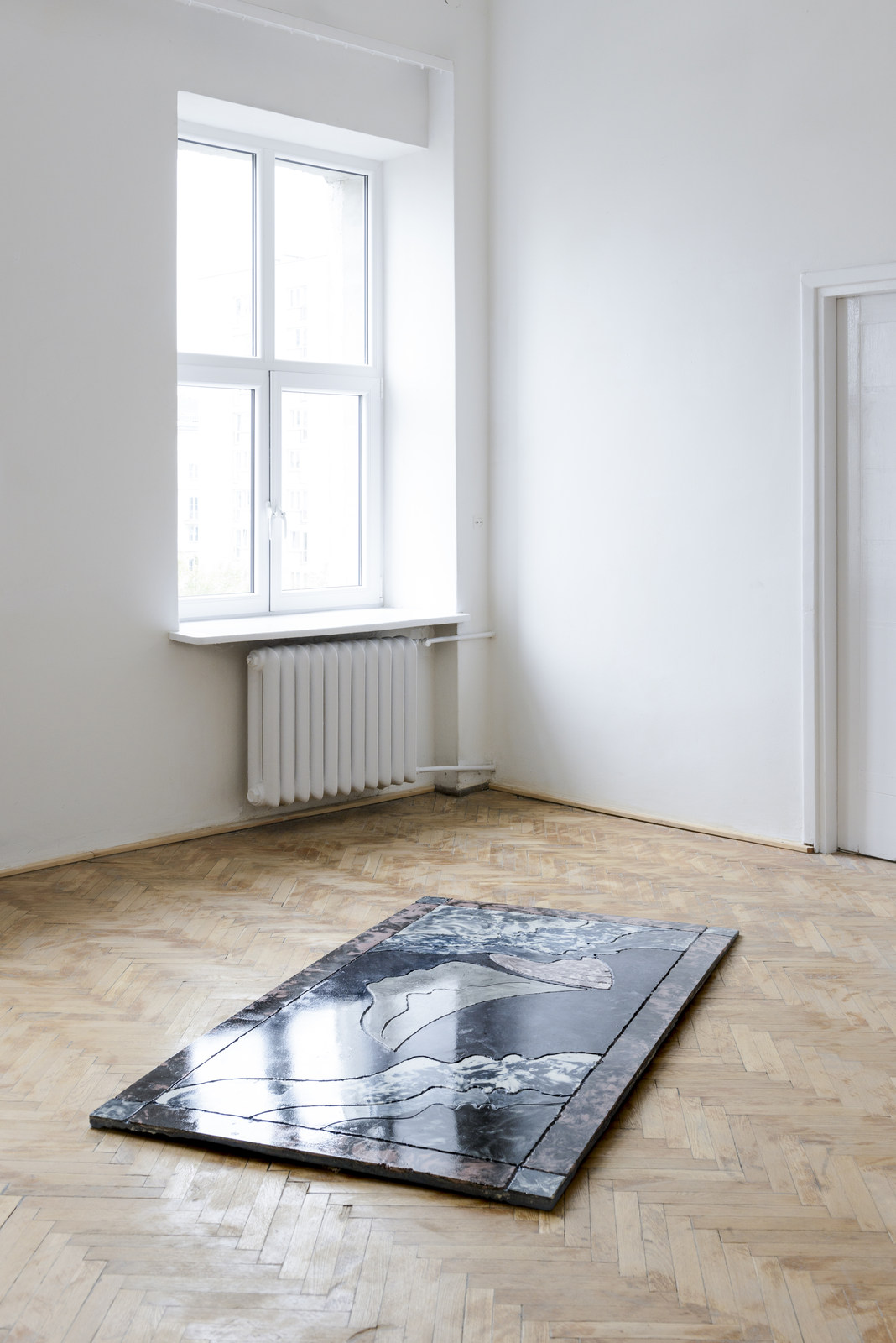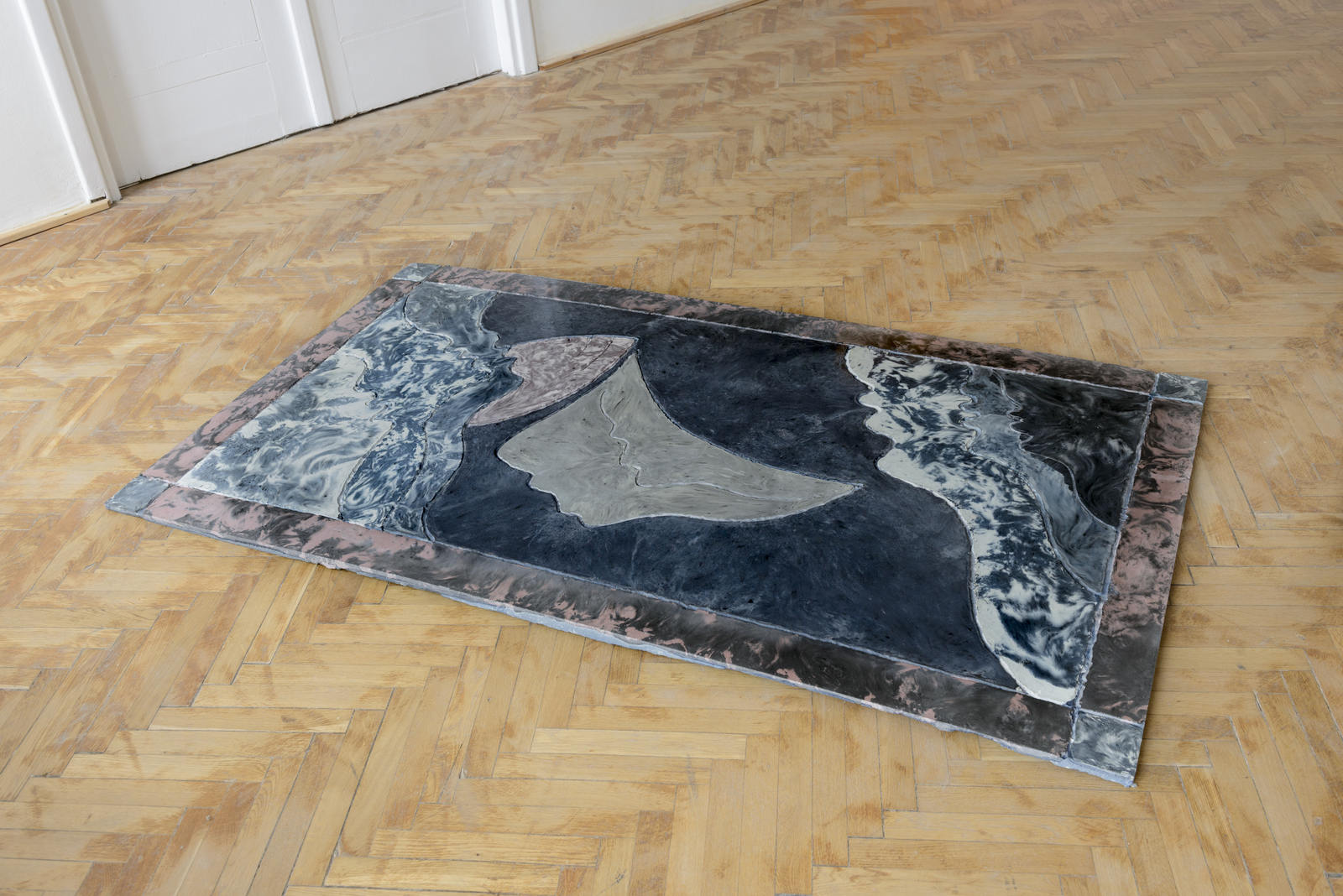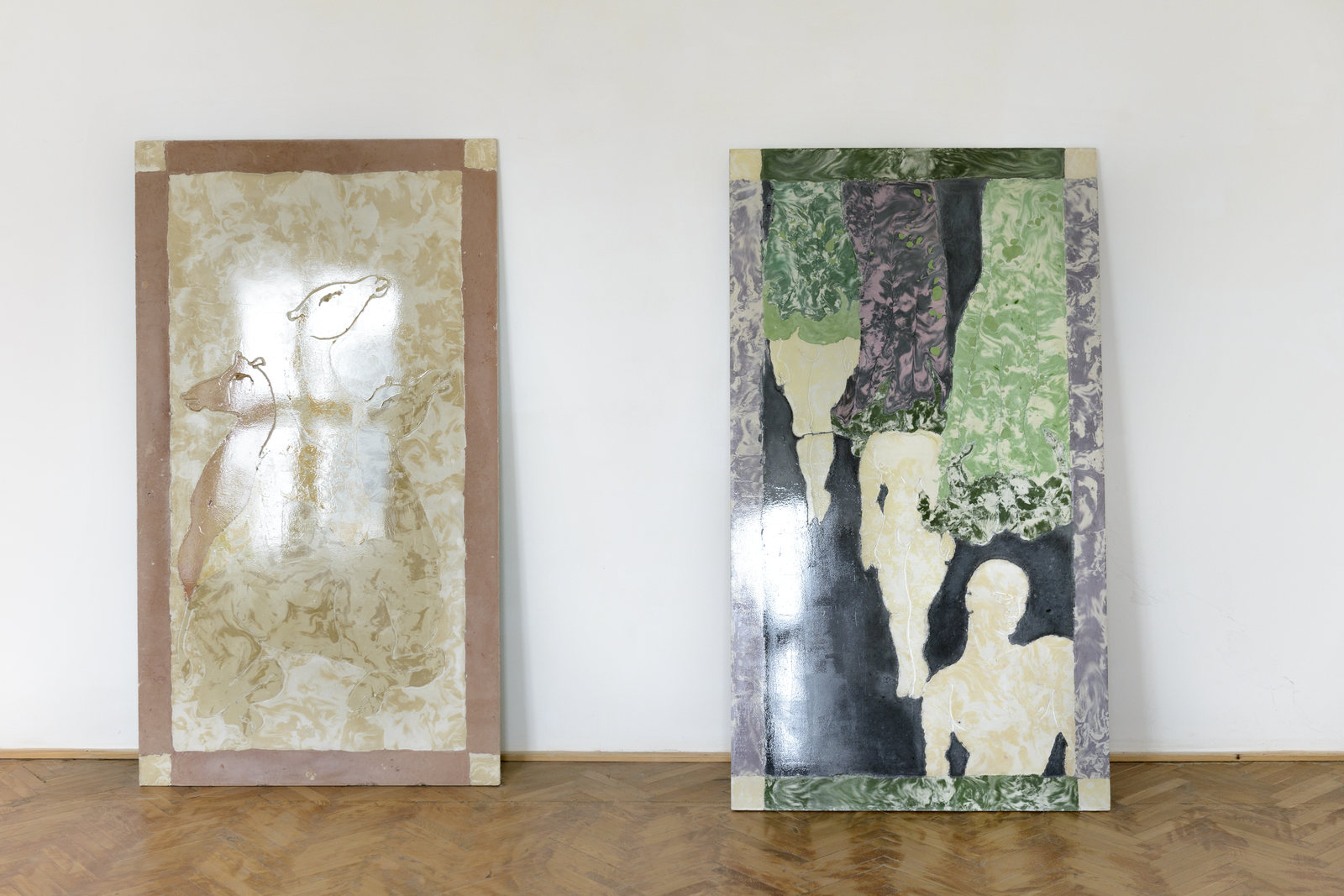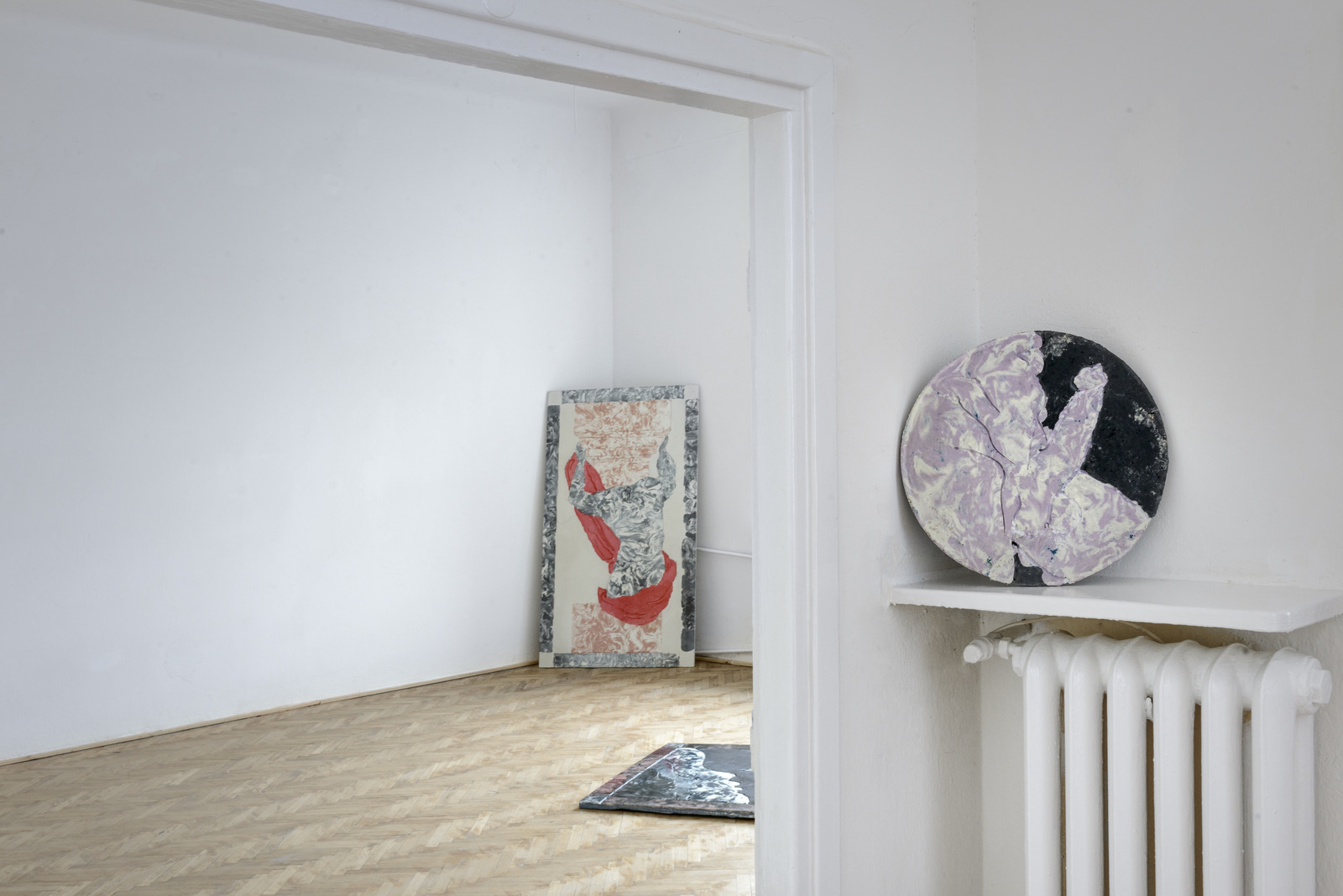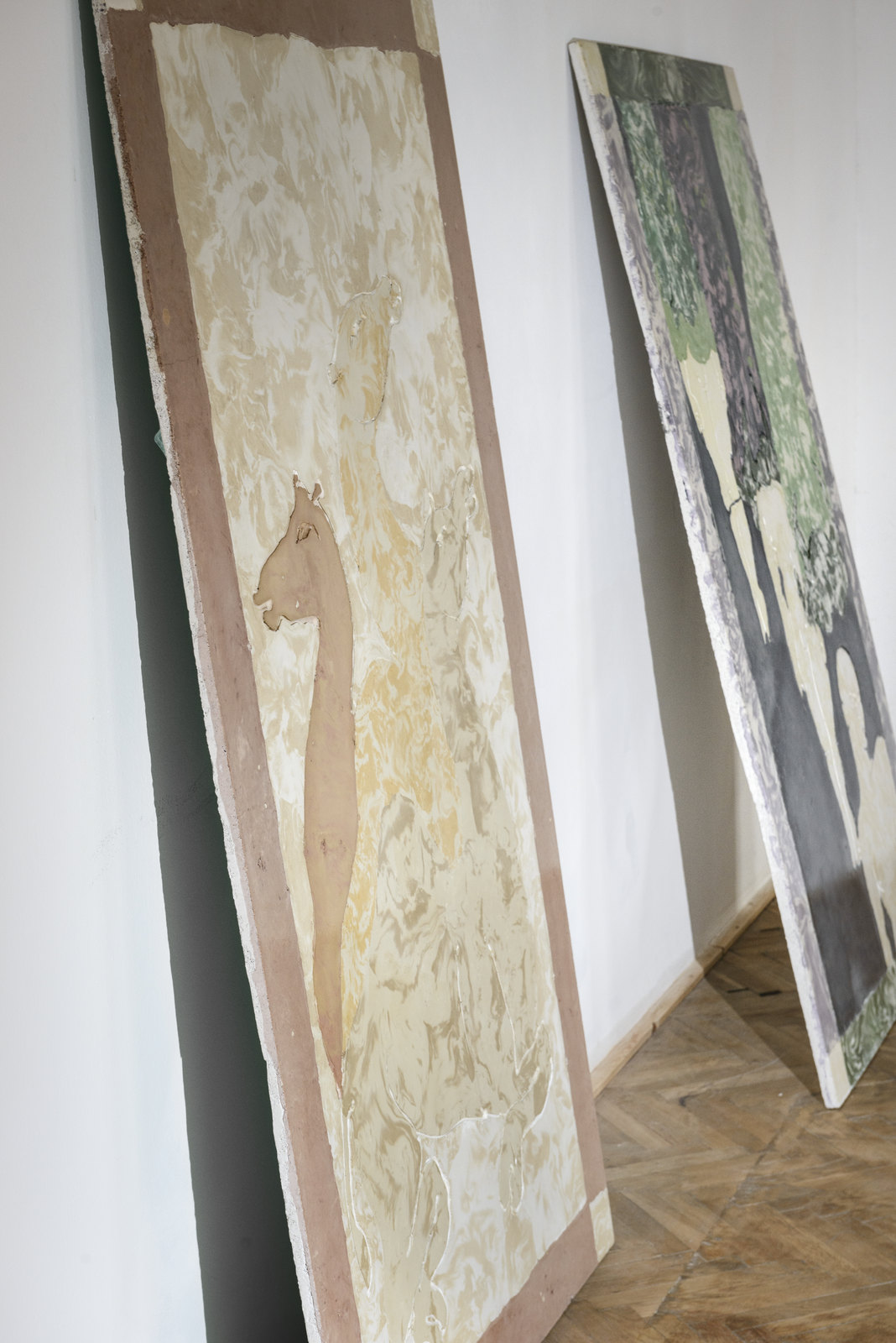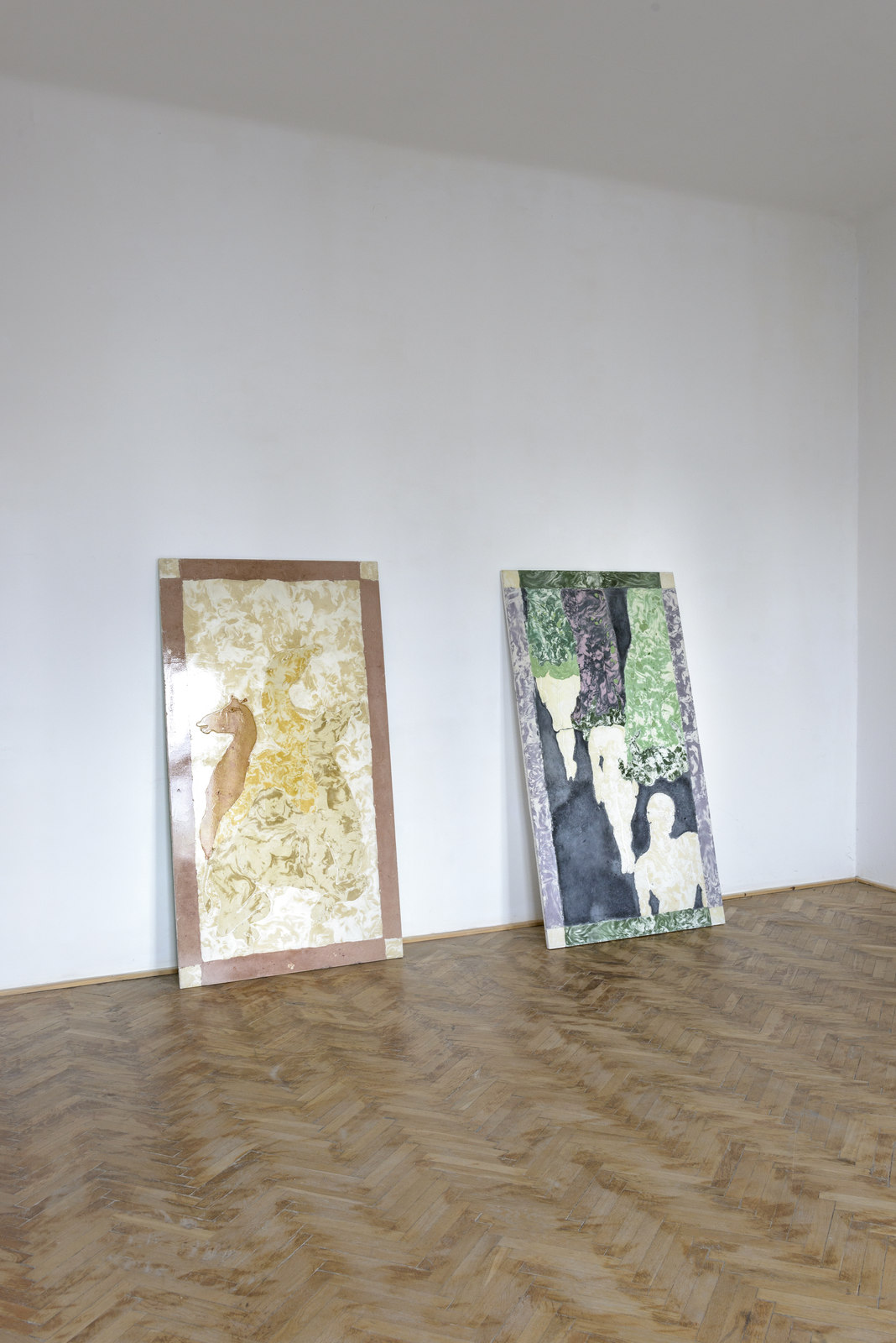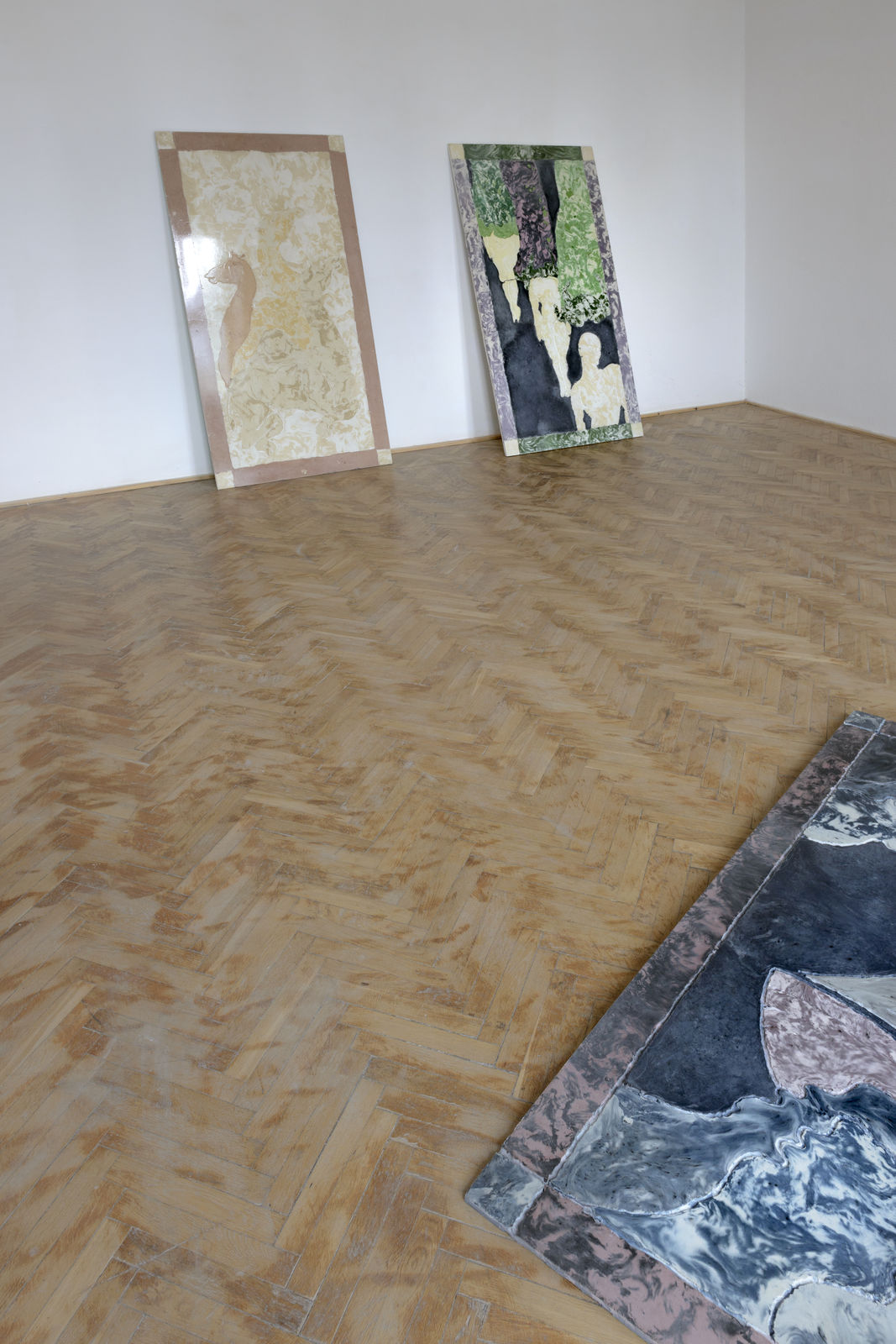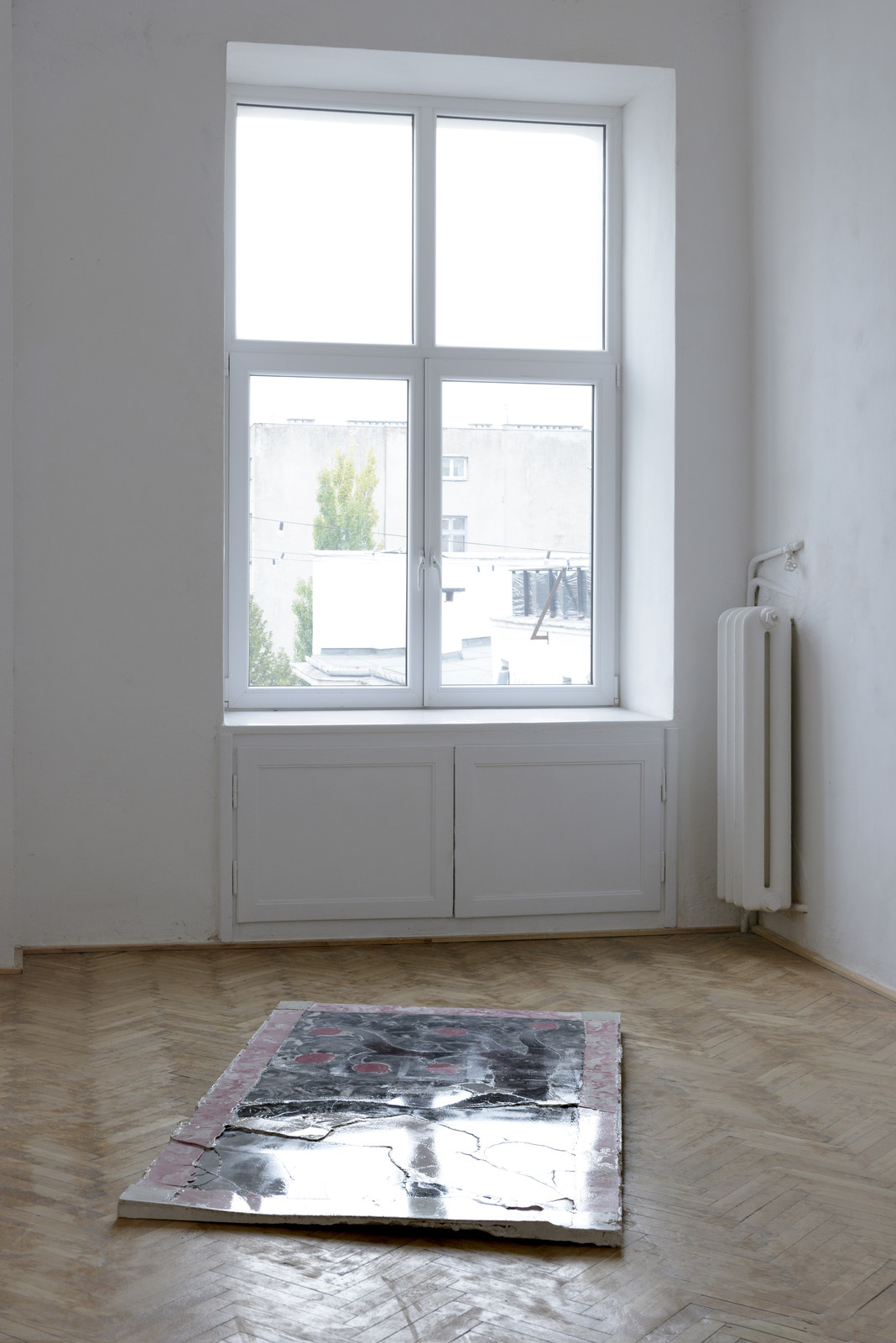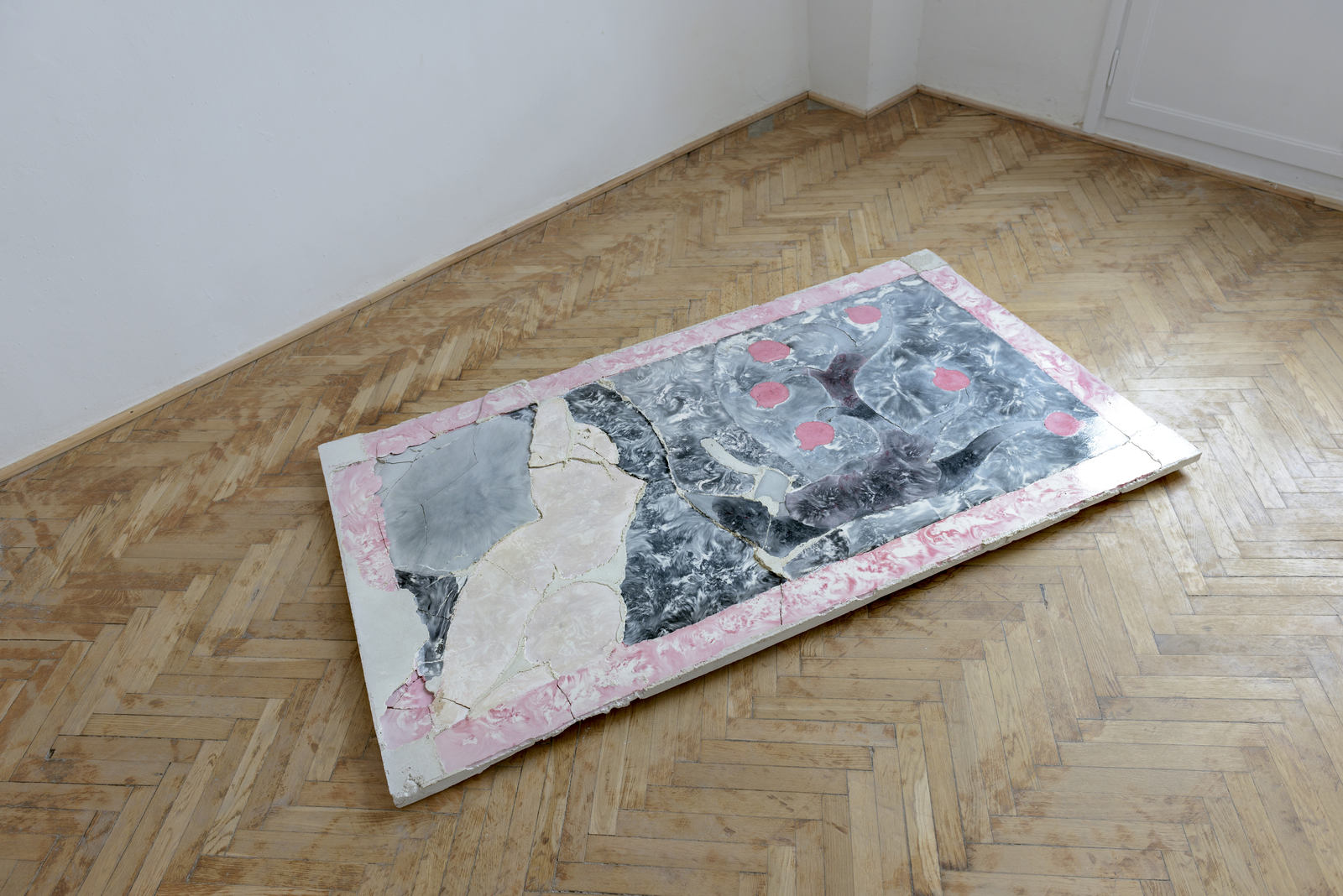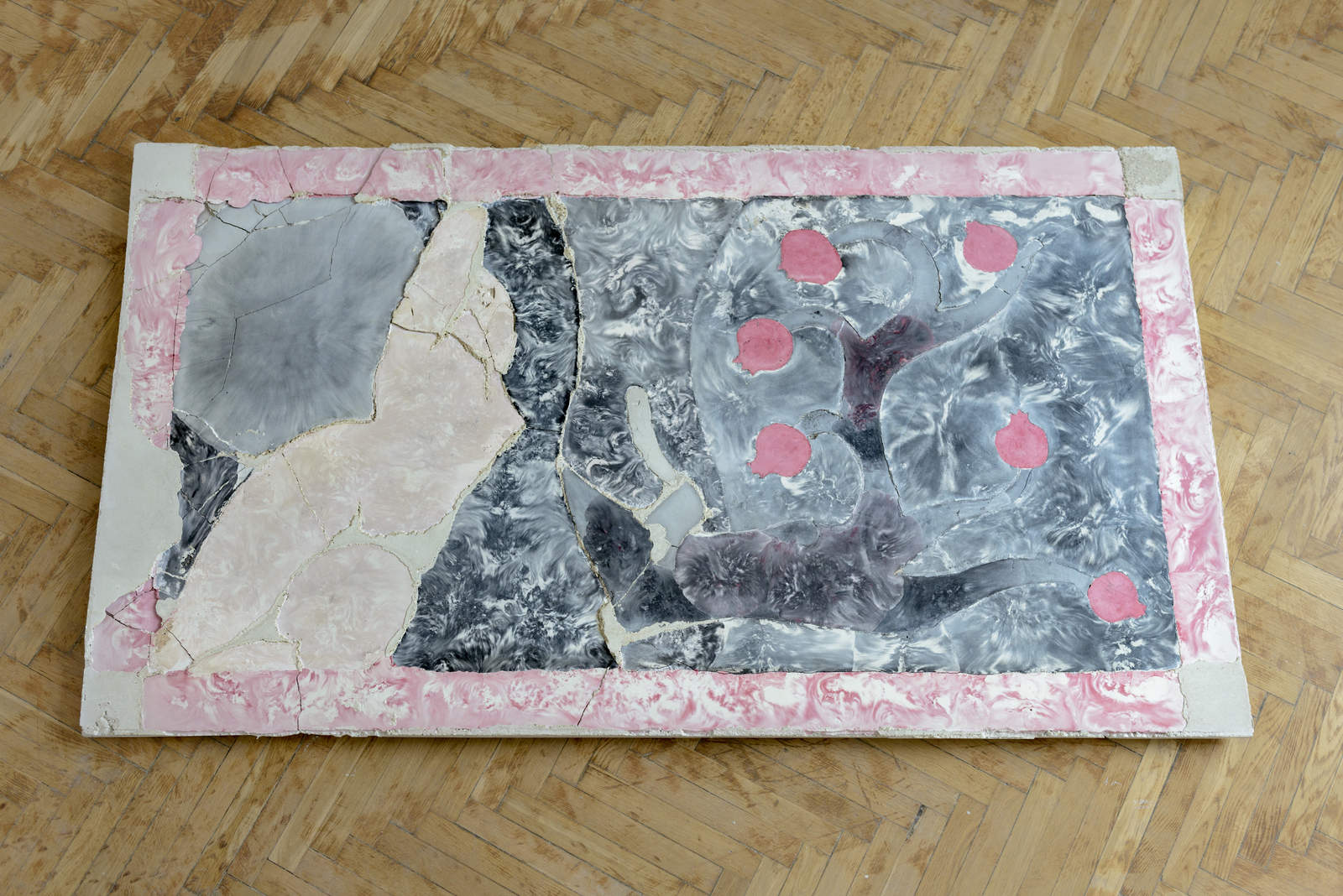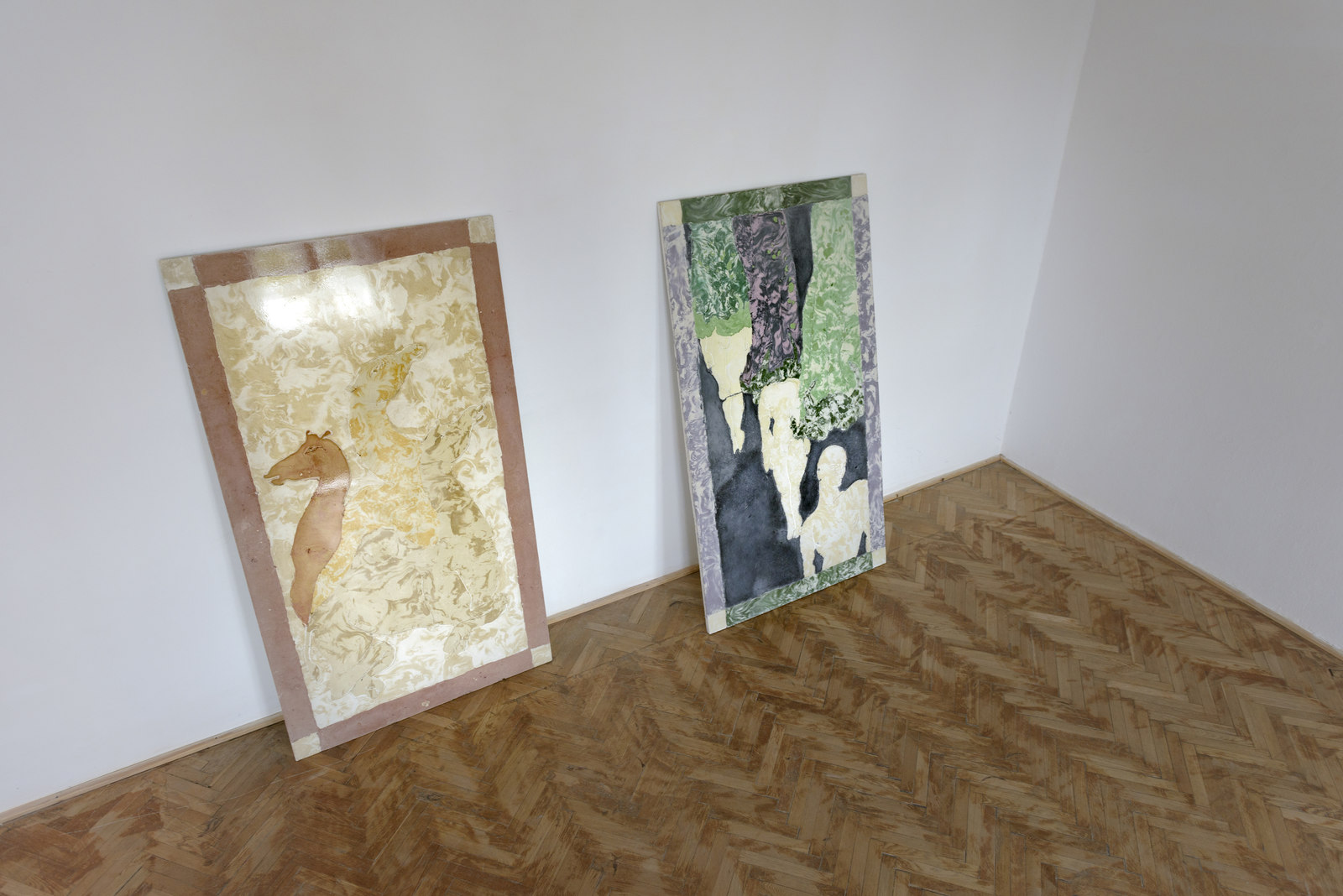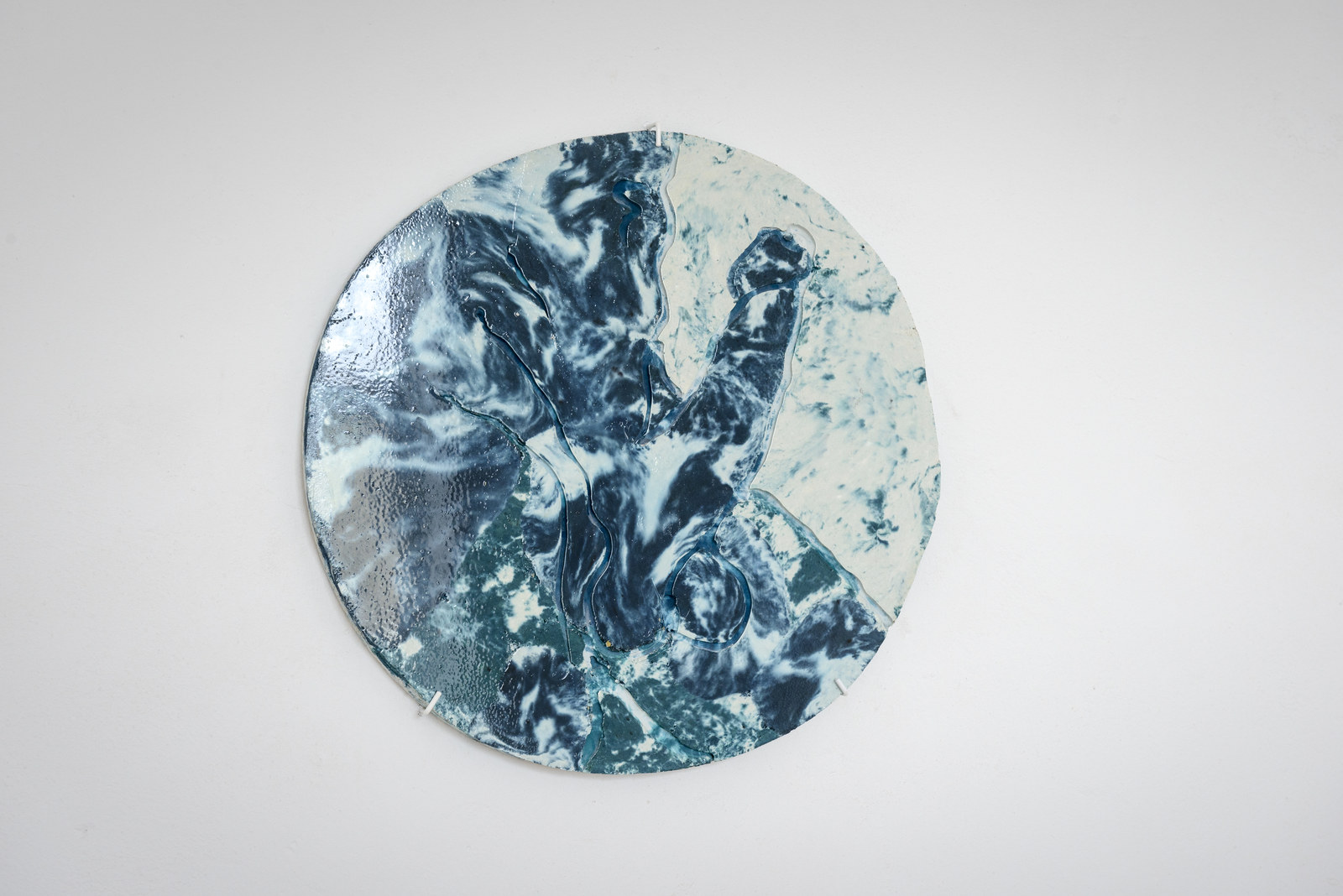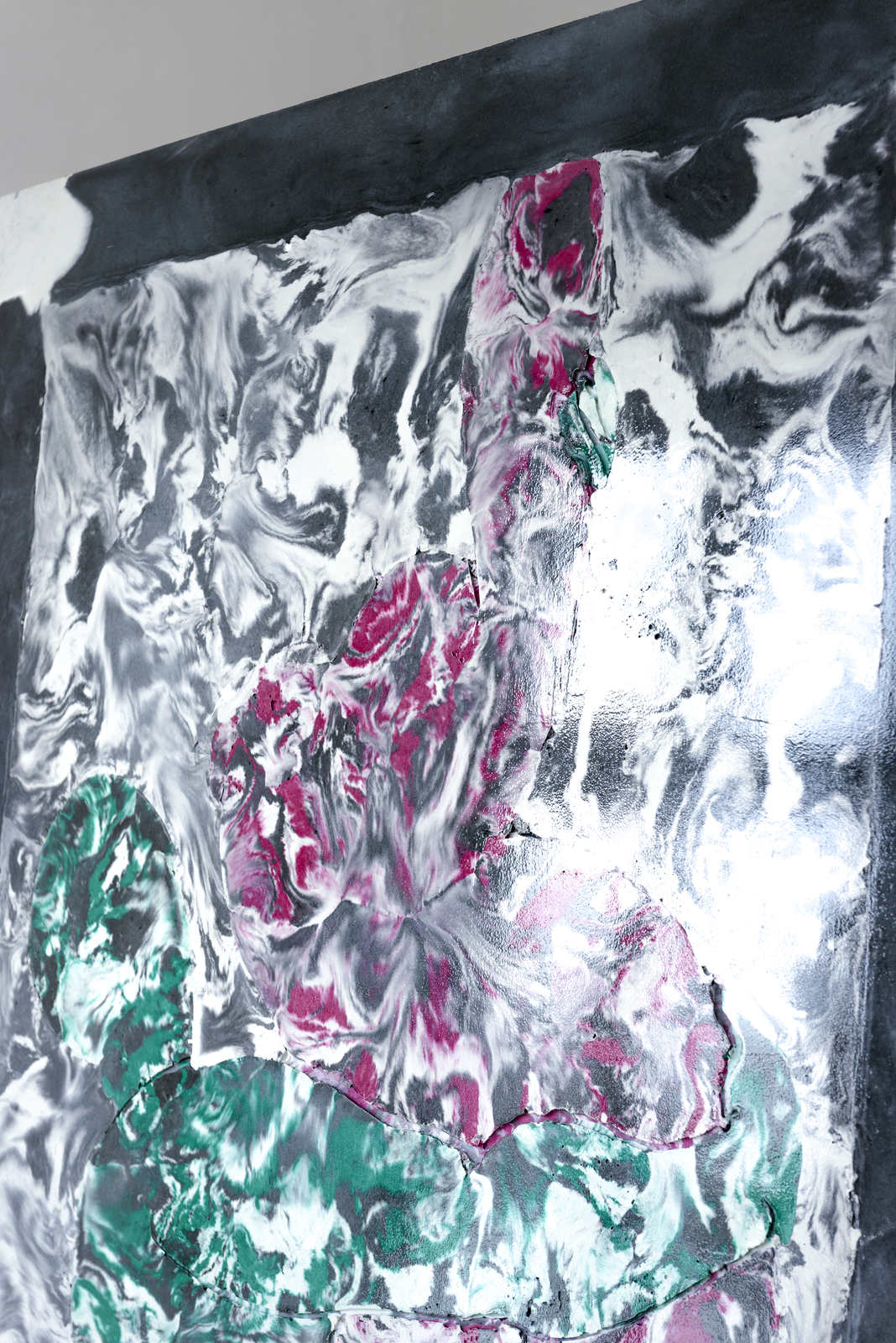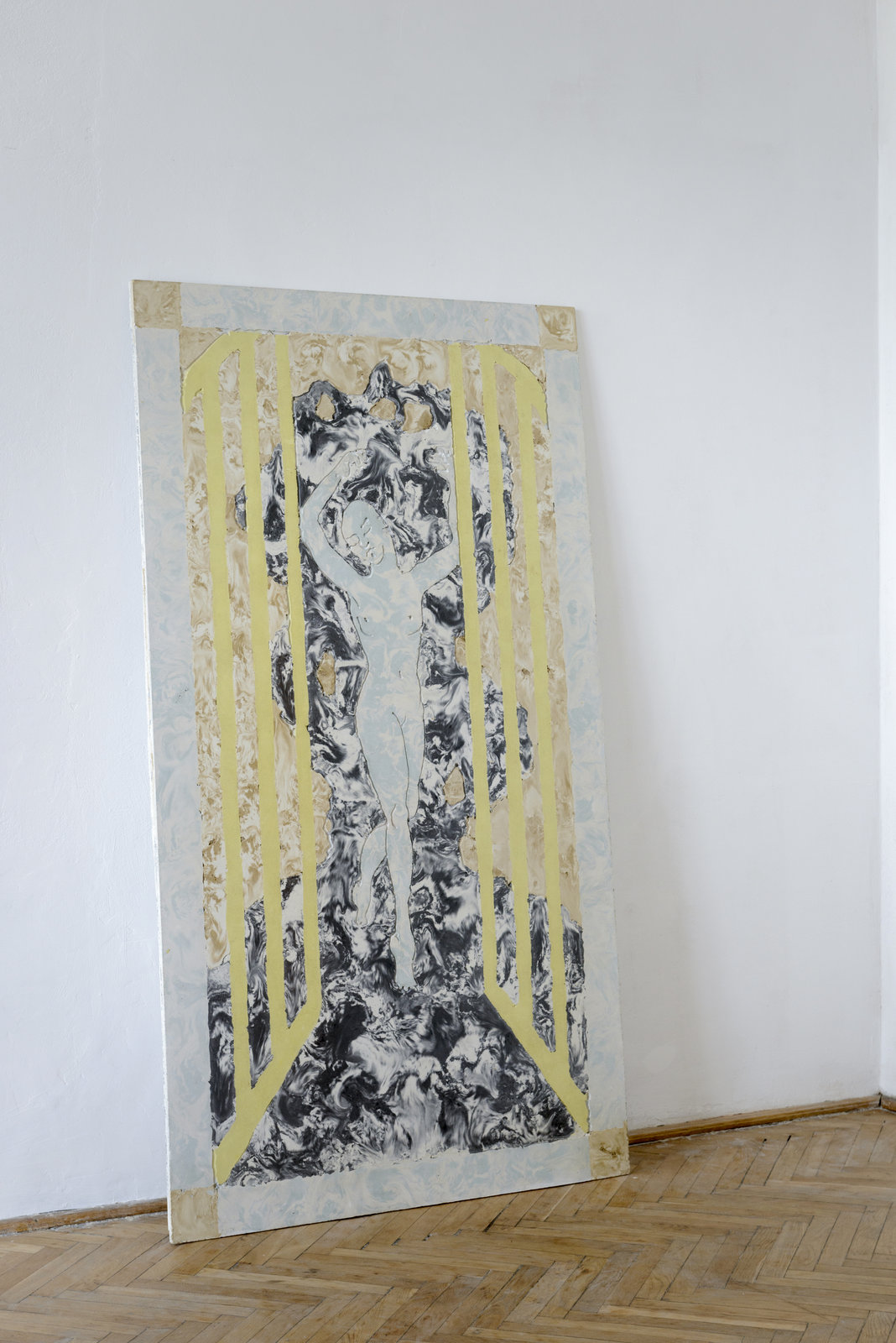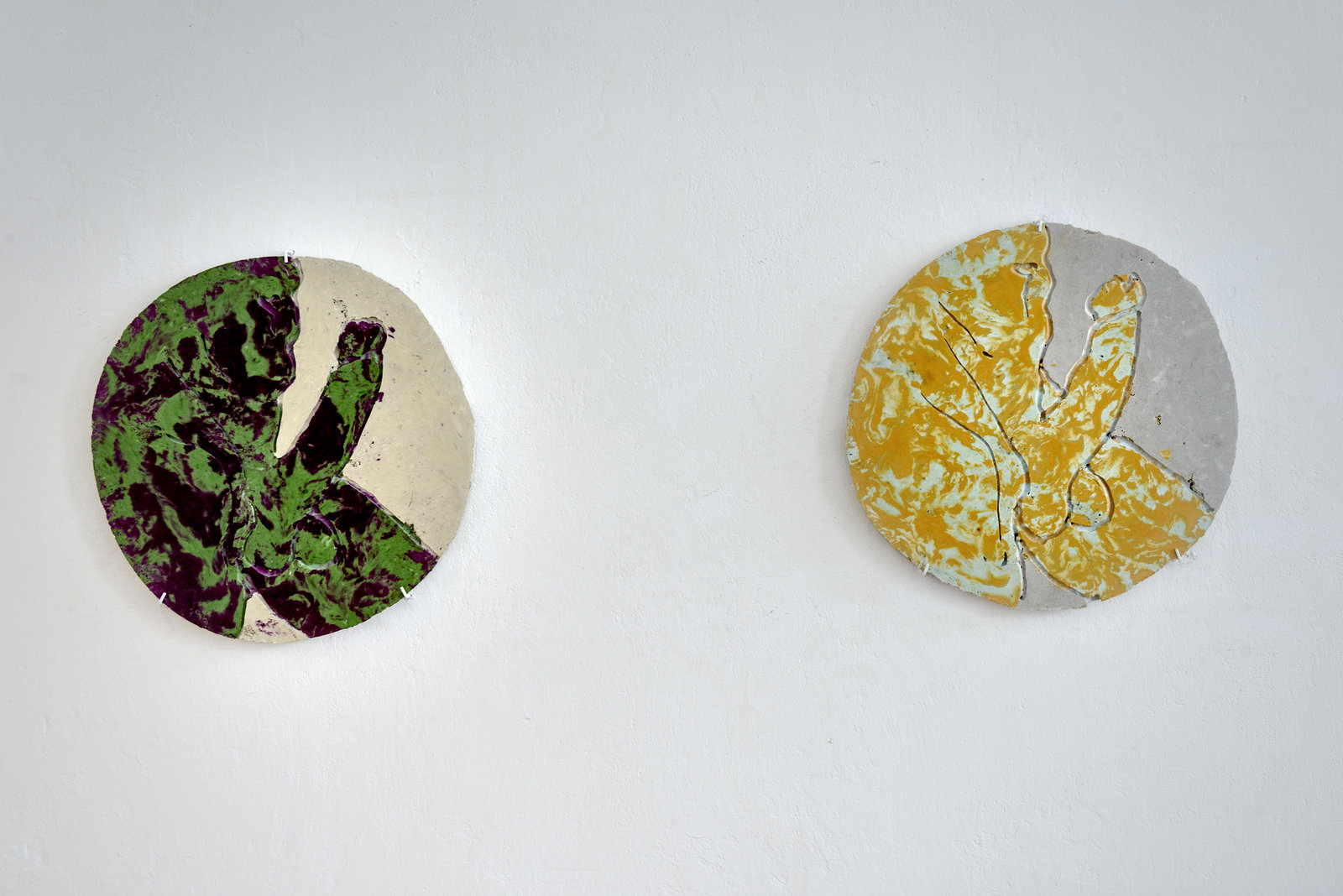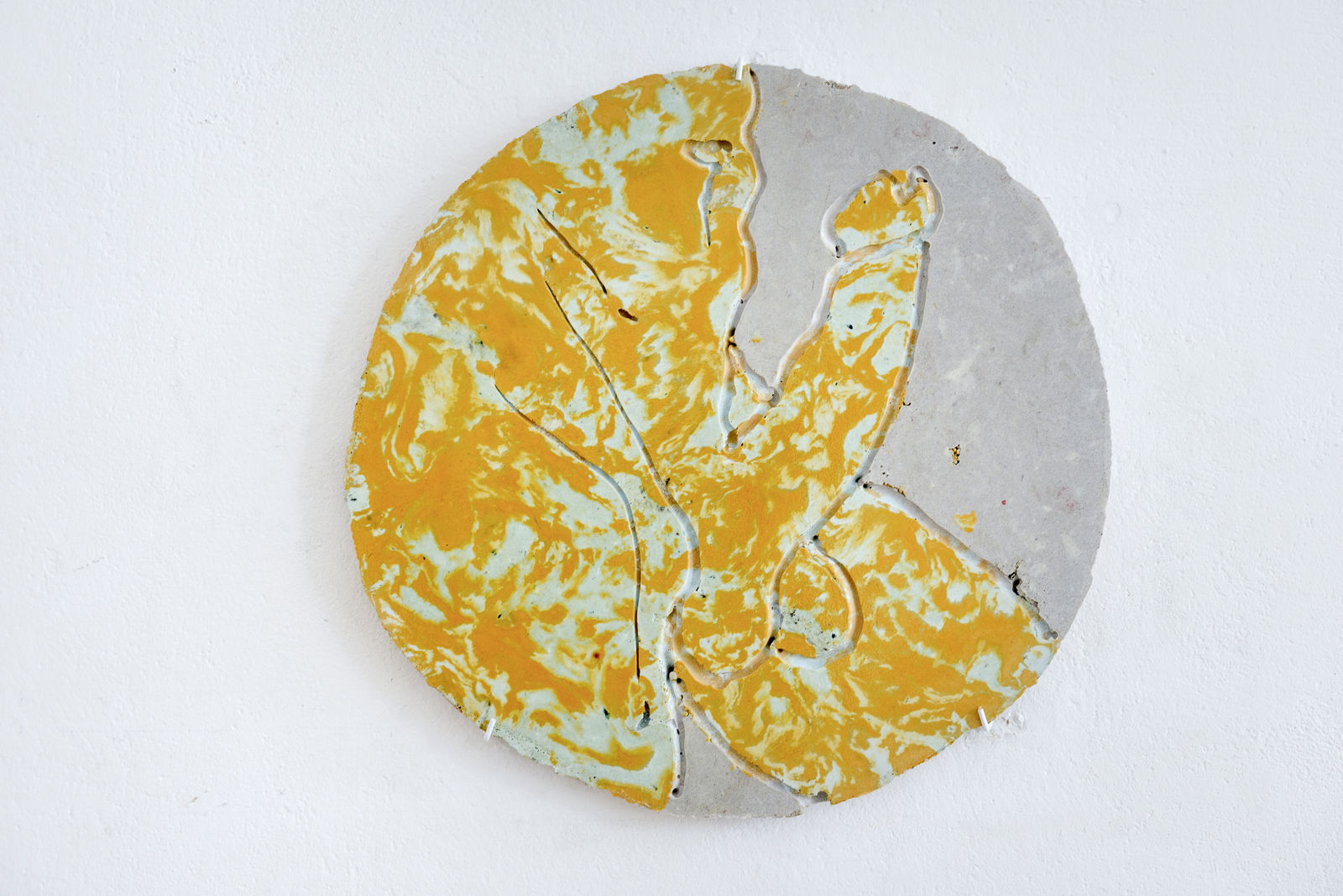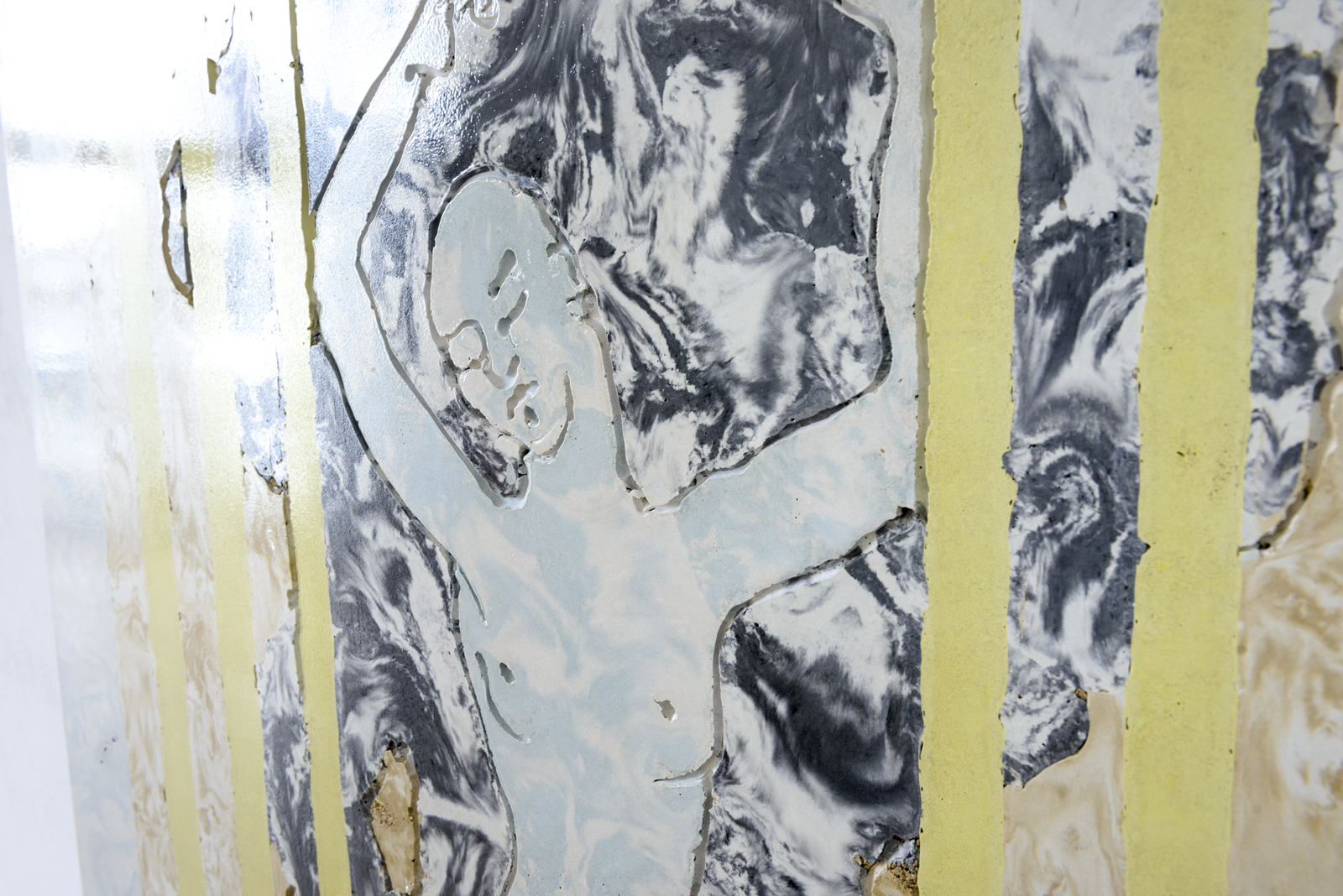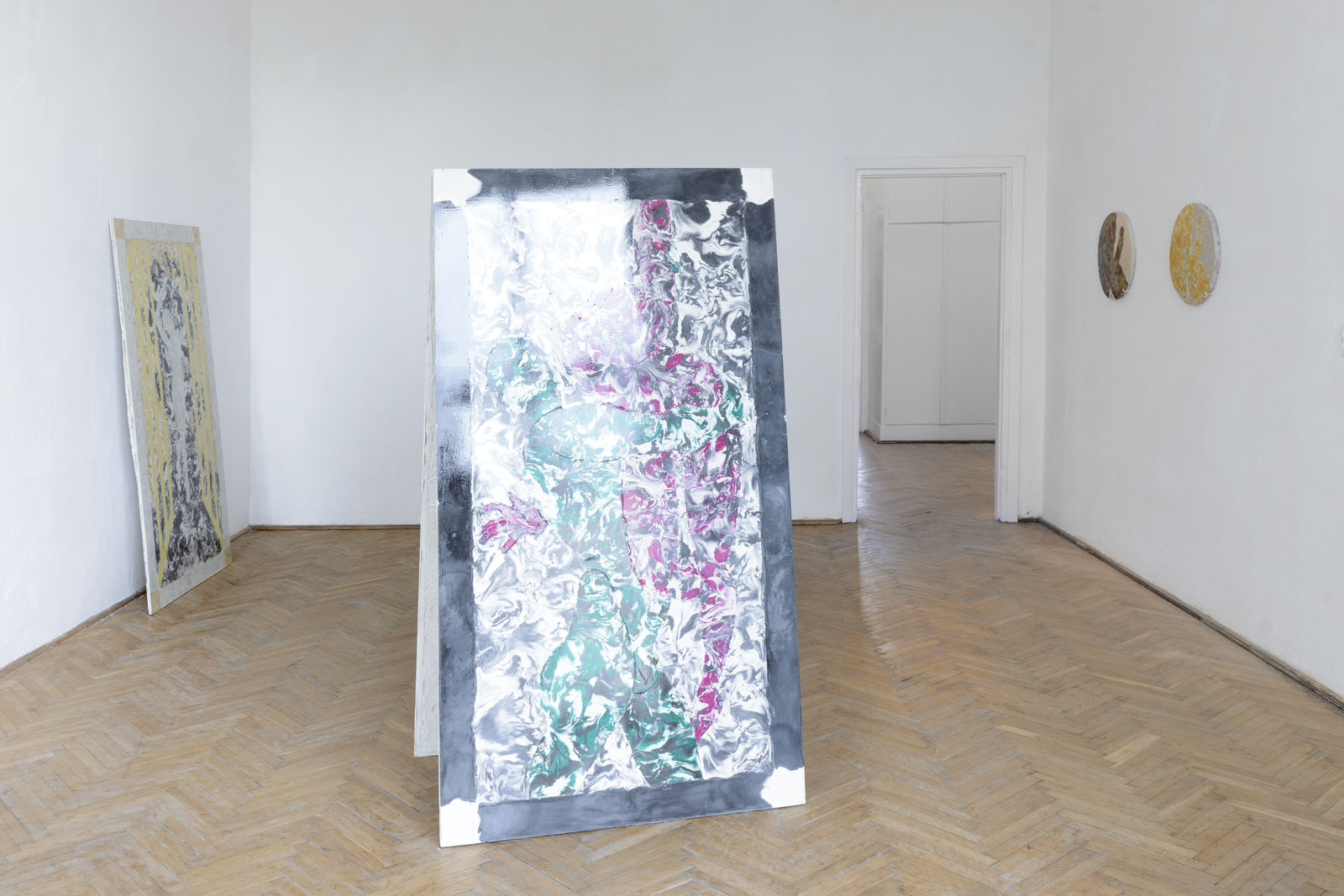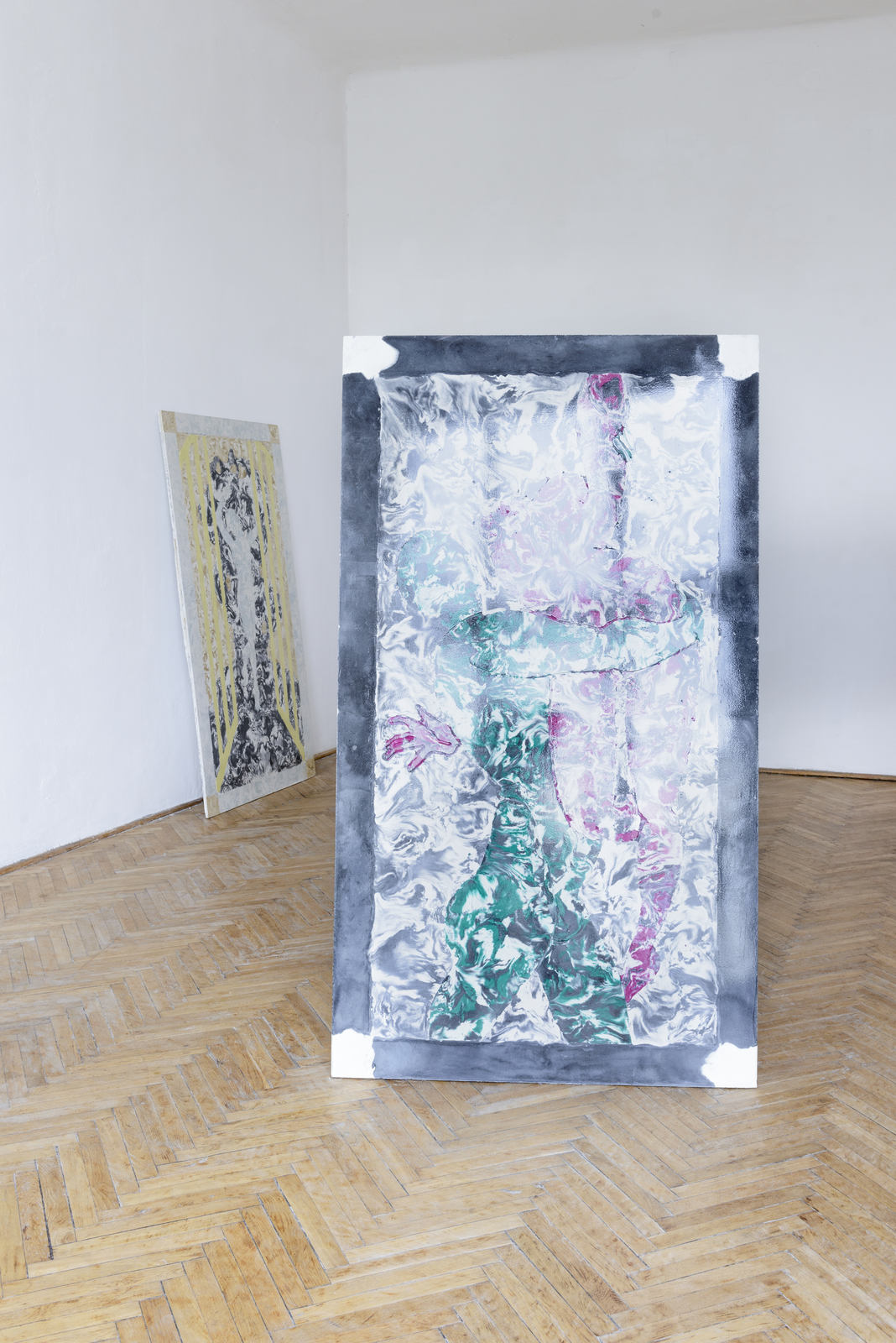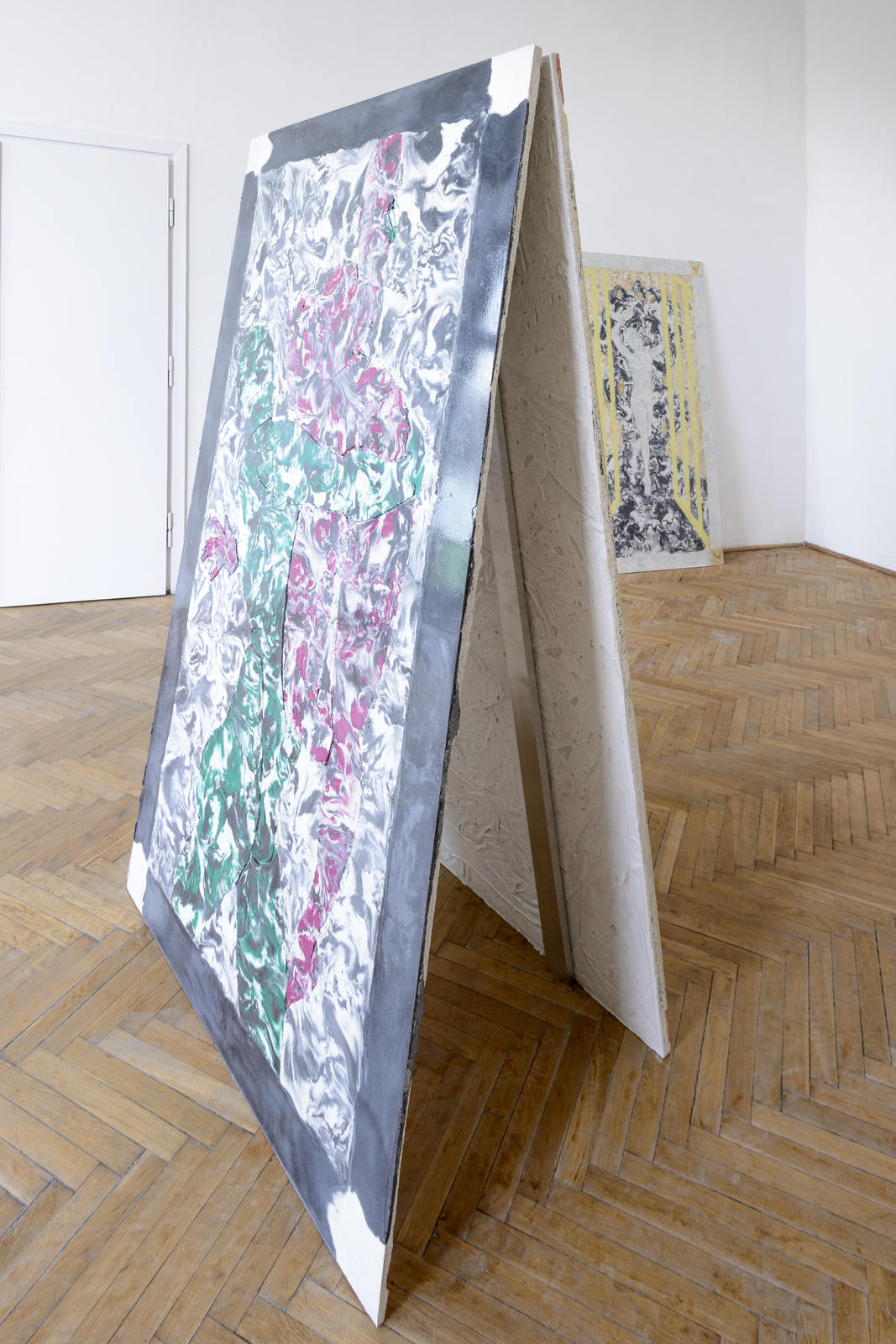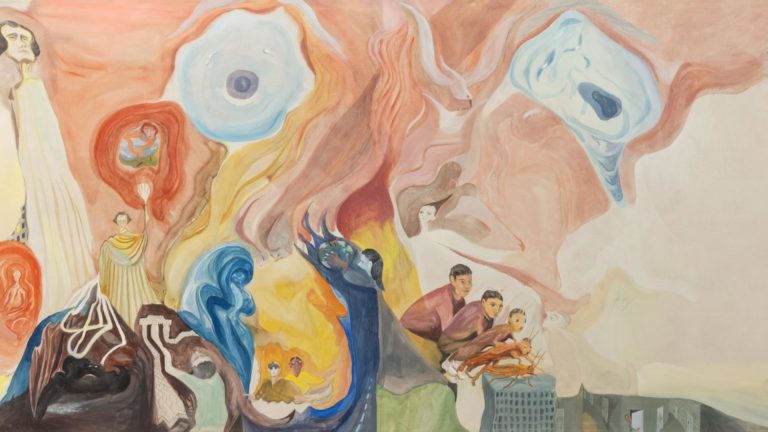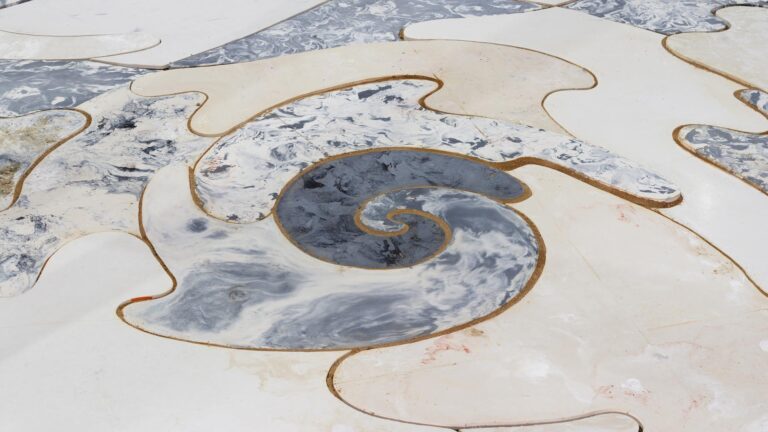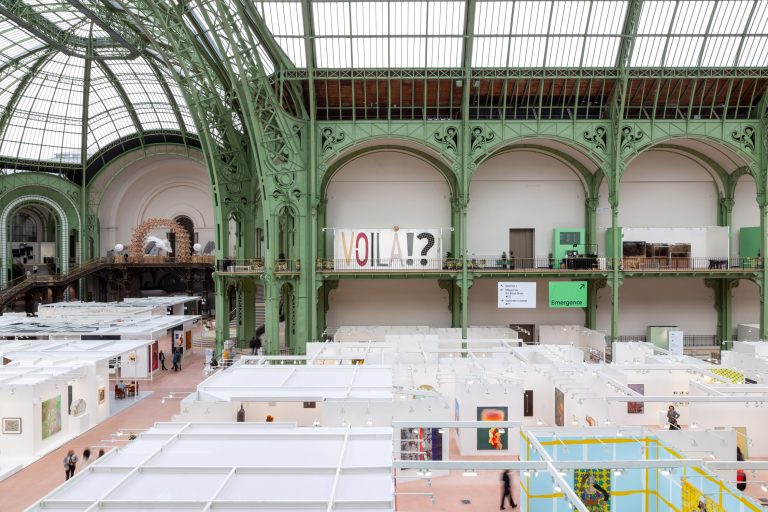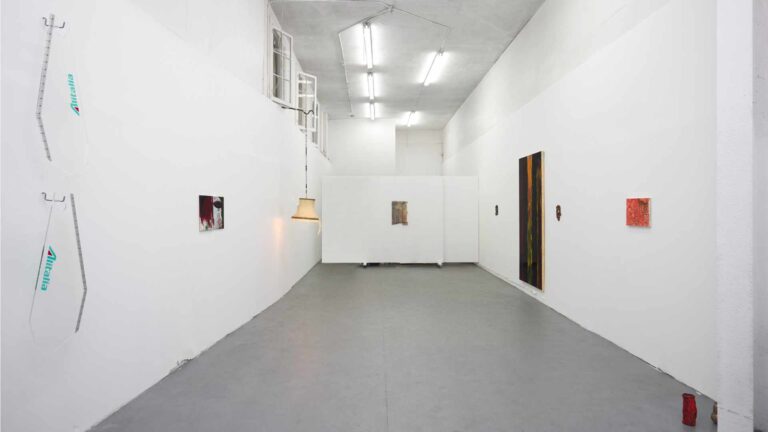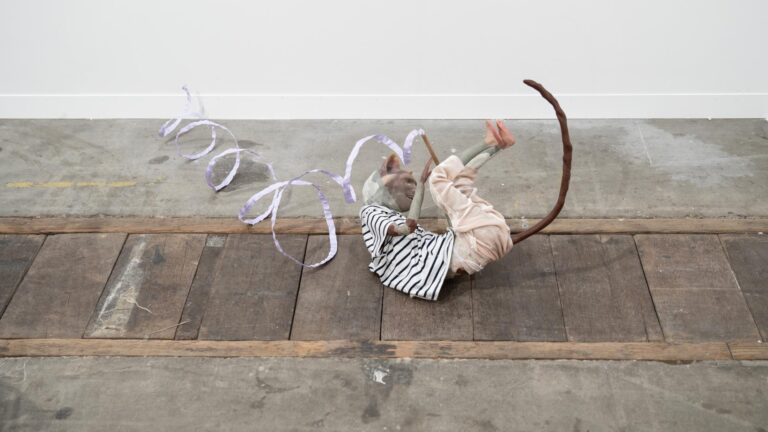Artist: Zuzanna Czebatul
Exhibition title: Ellipsism
Venue: Piktogram, Warsaw, Poland
Date: September 23 – November 12, 2016
Photography: all images copyright and courtesy of the artist and Piktogram
Piktogram is pleased to present Ellipsism, Zuzanna Czebatul’s solo debut in Poland. Out of powdery concrete, sculptor Czebatul produces her own material creating three-dimensional works that oscillate between figurative paintings, casted sculptures, and architectonic structures. For the newly produced show at Piktogram, Czebatul has conceived a series of eight large-scale concrete wall and floor works that draw upon Ancient Greek sculptures, Christian symbolism, and Occidental imaginary to form a picturesque yet subtle critical statement about Europe’s status quo. Looking closer at the seemingly native visual world, one might discover hidden narratives dealing with the current de-democratization and constitutional crisis in Poland. In short, Czebatul’s new body of work sheds light onto the signs that could help to decipher our future history. Ellipsism is part of Warsaw Gallery Weekend and runs through November 12, 2016.
Ellipsism is a coinage that describes “a sadness that you’ll never be able to know how history will turn out” and refers to a vague feeling of uncertainty that – given the rising challenges Europe faces –seems currently quite familiar. In this politically intense situation, voices are raised that criticize the achievements of modernity, question the validity of human rights, and that interpret the freedom of movement and equality not as universal, but rather as personal. How will these developments affect our future? Somehow, it seems clear that we have reached a pivotal moment that will decide on our future will turn out.
Czebatul’s exhibition captures precisely this moment of uncertainty. Poured in concrete, the massive works illustrate scenes full of allusions: a sleeping nude lolls beneath a pomegranate tree, the Western symbol of fertility, love, and marriage, in the trunk of which an axe is stuck almost incidentally. Another work shows a dreamy dancer who seems to move in seductive sensuality in front of a half-open, half-closed gate. A third work shows a caryatid, an Ancient Greek sculpted, usually female, figure serving as columns of temples, whose seemingly masculine back in Czebatul’s imaginary only lifts the burden of the portal with a great deal of effort. Included in the exhibition are five additional works in which the hand of God pours black oil in eternal hellfire, angels’ trumpets devour healthy humans, dromedaries gather strength and endurance, sea and sky transform into commanding Goddesses, and the allegories Hope and Fear succumb to one another in erotic battle. In Ellipsism, this new body of work is tied together by a number of small rondi featuring erect phalluses, that not only remind us of the banality of male power in a gentle way, but that together with the eight large-scale concrete works draw upon the current developments of a world that seems to be unravelling.
“Art is not political,” to quote Jacques Rancière, “because of the messages and sentiments it conveys concerning the state of the world. (…) It is political (…), because of the type of space and time it institutes, and the manner in which it frames this time and peoples this space.” If, according to Rancière, politics is the re-arrangement of space and the re-assortment of arguments, then Czebatul’s exhibition is the momentary irritation that shakes one’s general opinions and re-assembles the driving and relevant questions of our time.
– Vivien Trommer
Zuzanna Czebatul (born in 1986, Międzyrzecz) lives and works in Berlin. She studied Fine Arts, graduated from the Staedelschule, Frankfurt/Main, in 2013, and later attended Hunter College, New York, as Fulbright Fellow. She is also a recipient of the 2015 SOMA Scholarship, Mexico City. Czebatul has had solo exhibitions at MINI/Goethe-Institut Curatorial Residencies Ludlow 38, New York; Bad Reputation, Los Angeles; Schmidt & Handrup, Cologne; Gillmeier Rech, Berlin; and 1822-Forum, Frankfurt/Main. Recently, her work was included in group exhibitions at Contemporary Art Museum St. Louis; Jeanrochdard, Brussels; YGREC, Paris; 1m3, Lausanne; Heidelberger Kunstverein; and Villa Romana, Florence. Later this year, her works will be presented at Not Fair, Palace of Culture and Science Warsaw; Zgromadzenia, Warsaw; and Platform, Stockholm.




